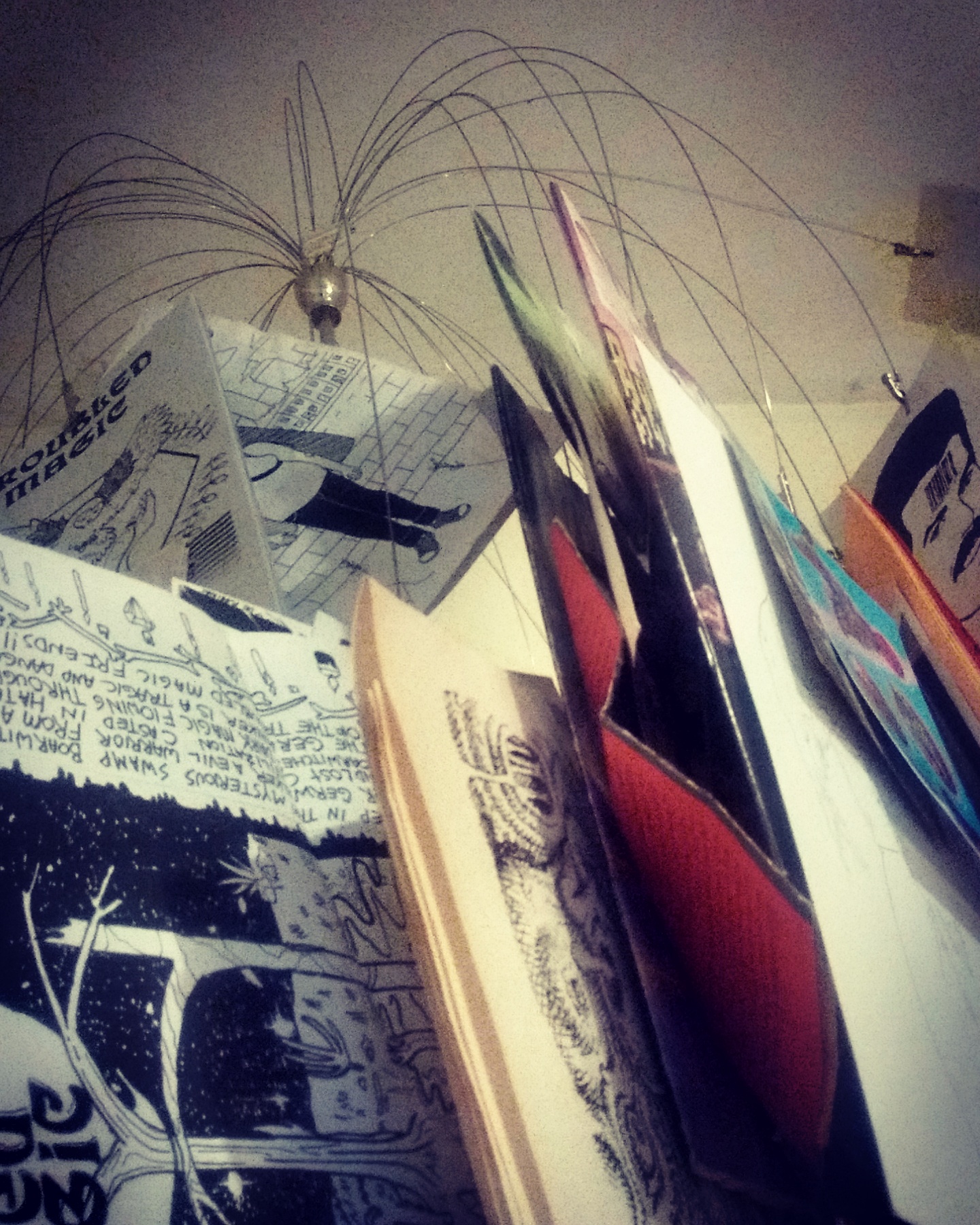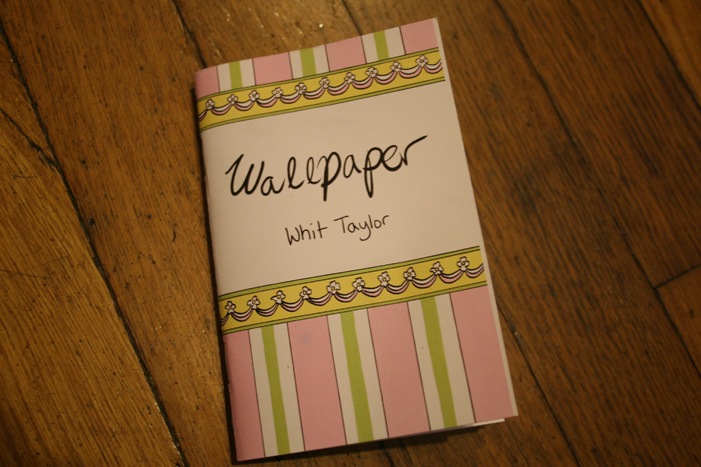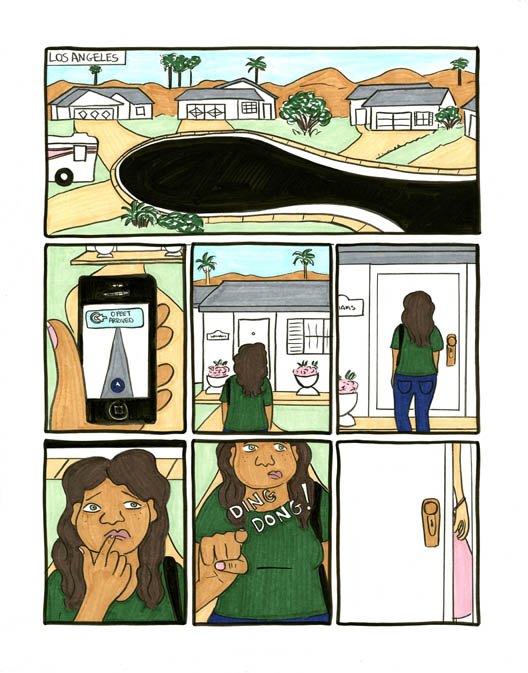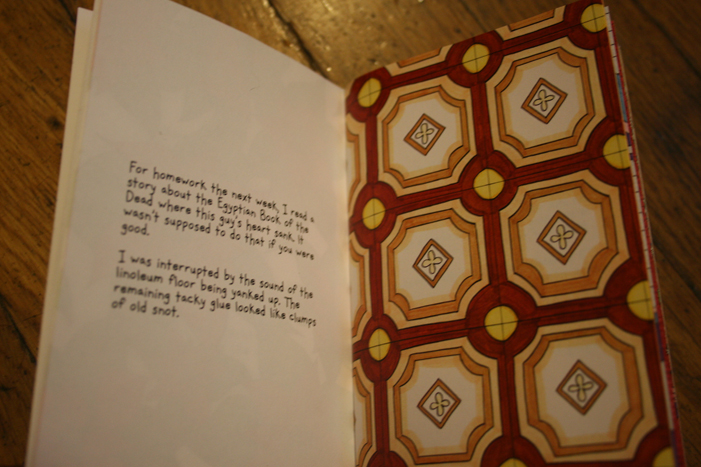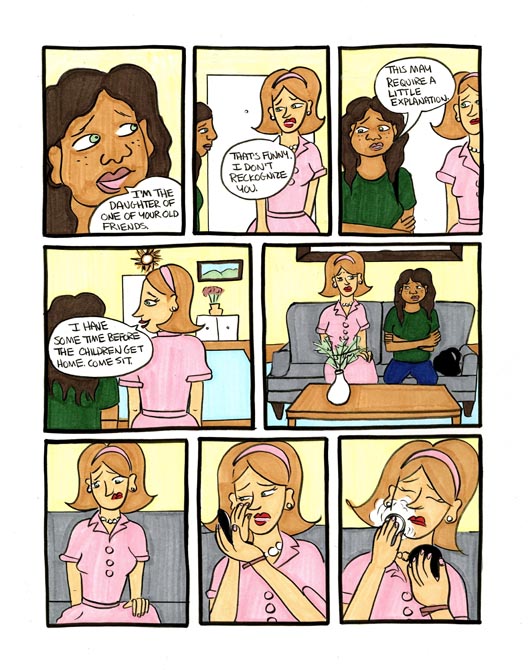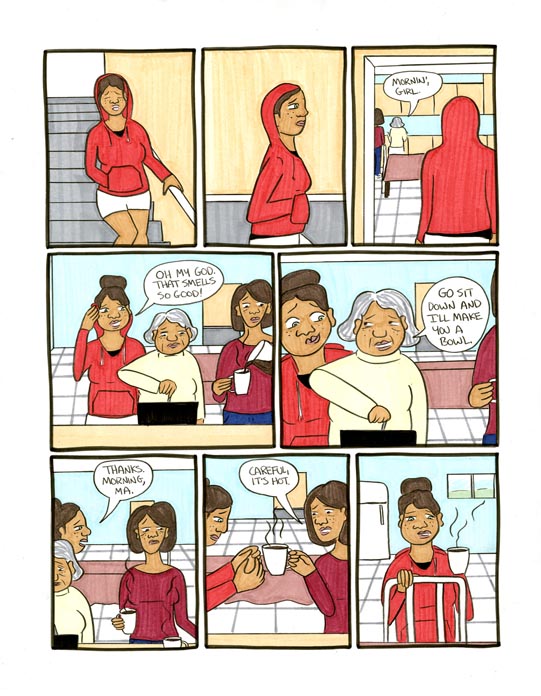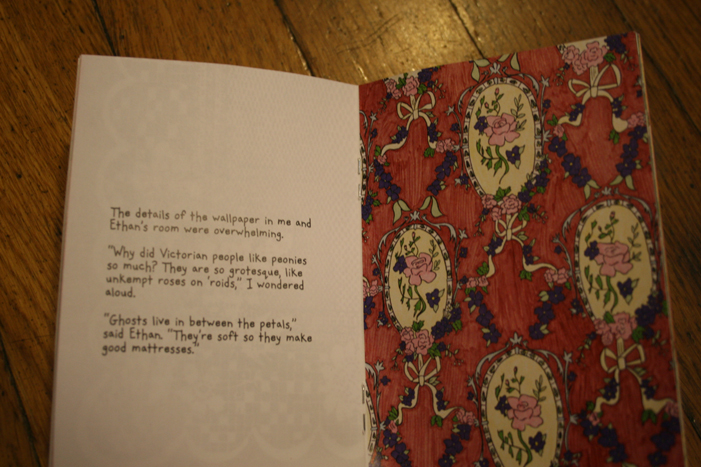AG: Hi Whit! The first work of yours I ever read was Passing. The comic (no longer available online) struck me as very literary; the pacing in your work is very spare, and your newest work has (to my delight) included even more prose. Would you say this comes from your experience in webcomics or your other reading?
WT: Passing is based off of a screenplay I wrote back in college. I think it was the original made-for-film format which made the words play a supporting role to the environment. I'm not done drawing that story and hope to complete it at graphic novel size some time in the future. Wallpaper was more of an experiment. I was super busy this summer working on a longer, more research-heavy project and just wanted to go home and draw patterns to relax. After a while I came up with the idea of pairing a story with the patterns and letting them tell the story without the use of actual characters. In both cases, I don't think these stories work best in webcomics format.
>>Read a review of Wallpaper by Rob Clough >>
